It all started back in 2019, when Kay’s friend asked her for a simple request—to sew.
At the time, the friend was assembling a group of volunteers to sew reusable cloth pads from donated fabric such as towels and shirts. The purpose was to donate to girls in Kenya who would usually miss one week of school every month due to their period.
“Purchasing disposable feminine care [products] for them was not feasible,” Kay shared. “Not only was the recurring cost prohibitive, the village lacked the basic waste management services that we take for granted.”
This simple request then became a gateway for Kay to join more similar outreach programmes, where she would conduct “sew your own [pads]” workshops with the friend.
And eventually, it also became the reason behind the launch of her handmade zero waste store called The Tinkerbox.
From volunteer work to entrepreneurship
While browsing through the brand’s website, I noticed that Kay credits much of the business’s start to this volunteer work.
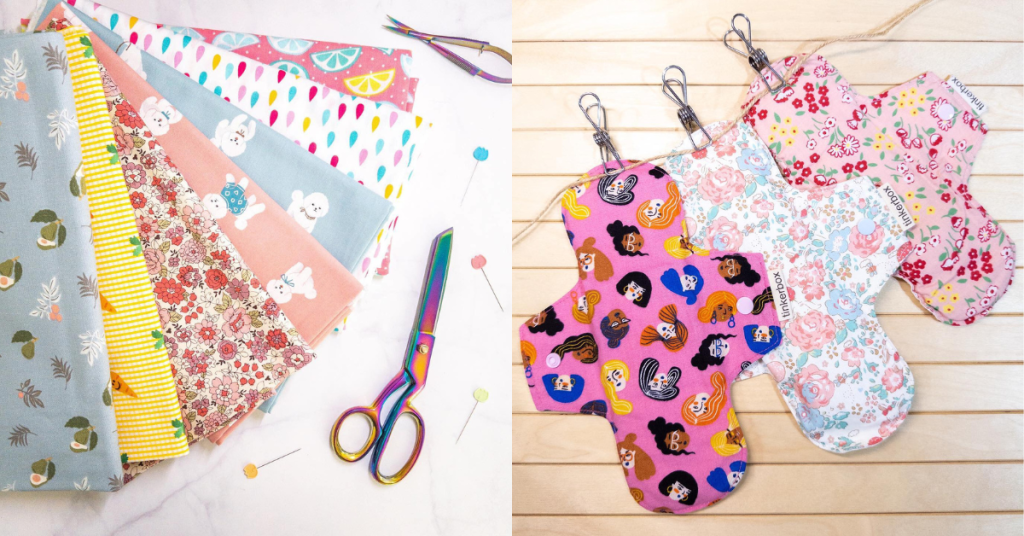
She explained that one day, a participant of their workshops asked her and her friend if they too used cloth pads.
Before then, Kay had never even considered using them herself.
“They were for [the] less privileged, not me,” she recalled thinking.
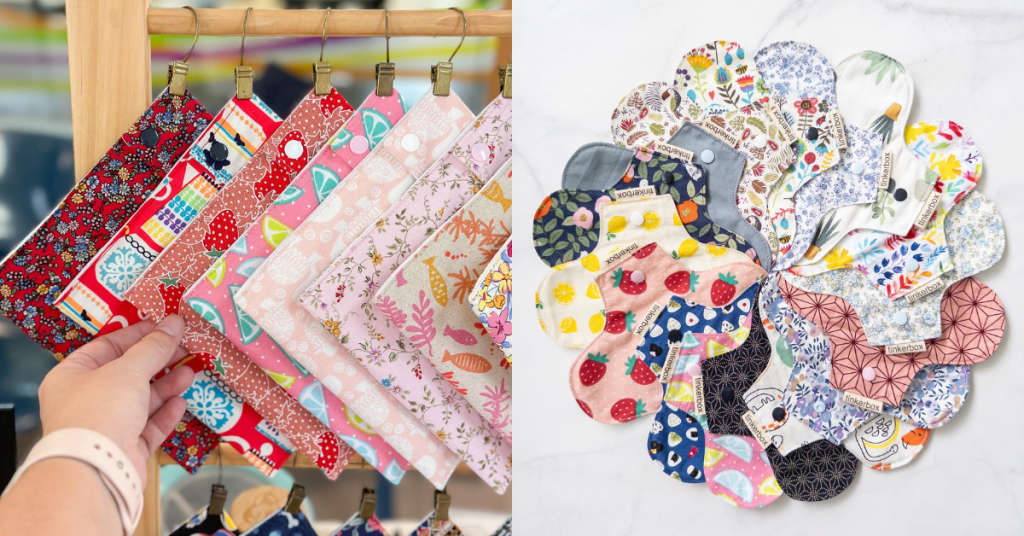
With the question lingering on her mind, Kay said, “I made the decision that day to try. I figured it doesn’t matter if I like them or if I decide it’s not for me. As long as I’ve tried them to decide for myself, I could speak authentically.”
So she gave herself a week and started off by using liners.
At the end of the week, she felt rejuvenated and gave all her disposable liners away and never looked back. She could only describe the experience as life changing as it was “so incredibly comfortable”.
Sewing her hope for sustainability in each product
This led to her being more open to sustainable products and she happily took on requests from her friend to sew more items. This included wipes and a cup holder for her non-standard shaped reusable coffee cup.
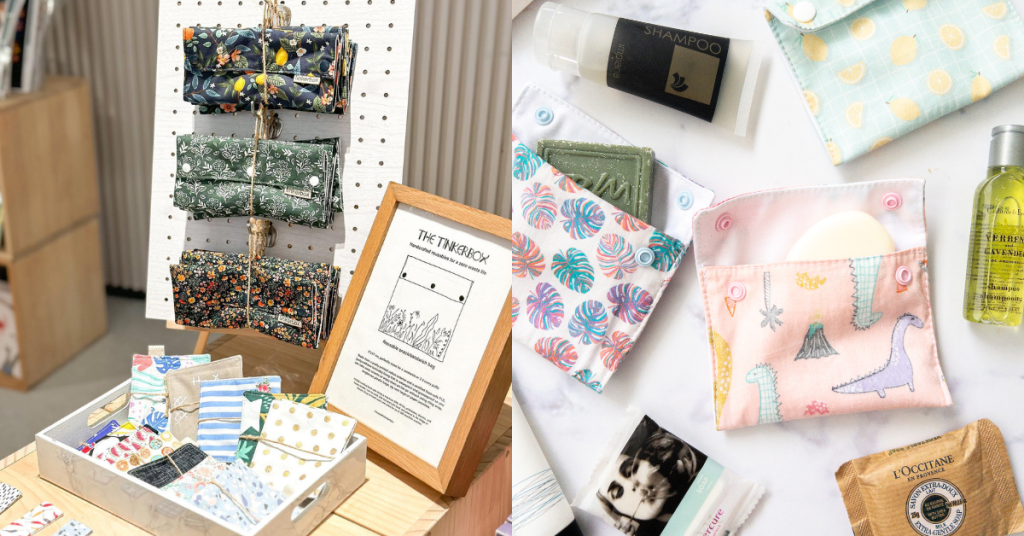
Loving her creations, this friend encouraged Kay to share them on social media, and the orders asking to purchase them came flooding in.
To accommodate the sales, she decided to launch The Tinkerbox and turn this project into a practical venture.
Branding itself as a creative studio, Kay’s intention with it is to handcraft reusable fabric alternatives for her customers to live their “best zero waste life”.
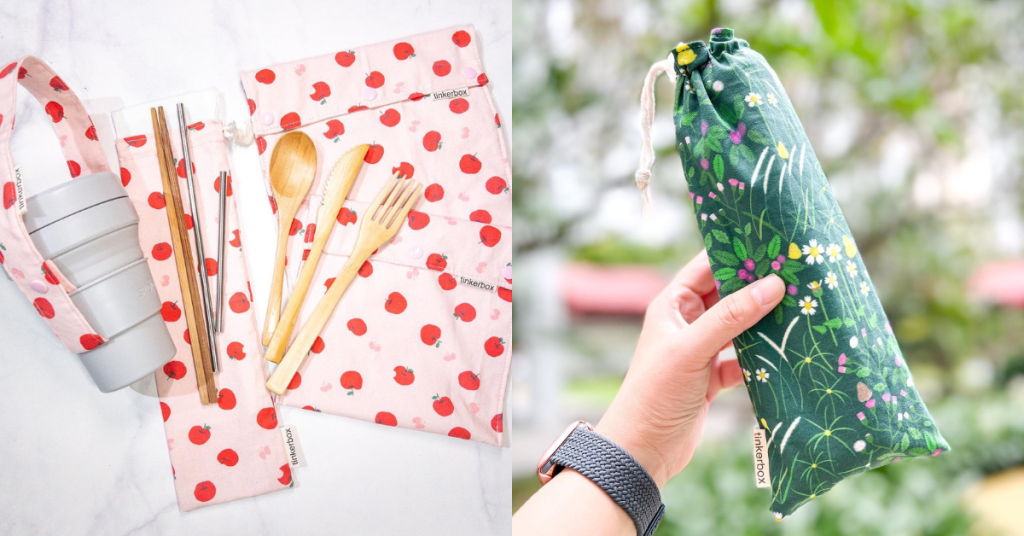
As for the name, it was a homage to her father, a retired aircraft engineer who influenced her to start tinkering with things from a young age.
The “box” part referred to two other aspirations she had: that it would be like a jack-in-the-box (full of surprises) and as a reminder to think unconventionally (outside the box).
At the start, The Tinkerbox only sold cloth pads like the ones she would donate to Kenya. But its catalogue has since expanded to include other non-feminine care items.
Currently, you can find products such as:
- Waterproof soap keepers for bar soaps and solid shampoos (S$15 to S$20)
- Coffee cup straps that clip on to any reusable cups (S$10 to S$15)
- Cutlery pouches with a removable waterproof and greaseproof lining (S$17 to S$22)
- Dog treat pouches that’s greaseproof and food safe (S$15)
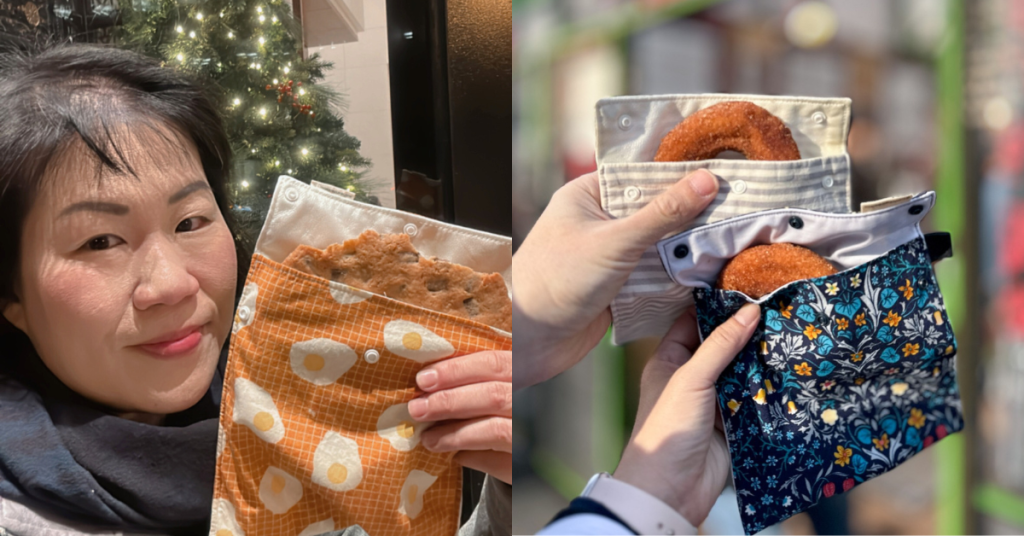
One of her bestsellers, aside from the cloth pads, is the reusable snack baggies (S$20 to S$26). They’re made to be waterproof and greaseproof, and are meant to replace single-use food bags.
Some other lifestyle products Kay sells are scrunchies, mobile wristlets, bookmarks, and coasters. Called “The Scrappies”, these collections are made using remnant fabrics from her other projects.
In other words, Kay avoids wastage and tries to practice her zero waste philosophy even on the manufacturing level. Each piece is also sewn by herself, reflecting a rather slow fashion approach to the business.
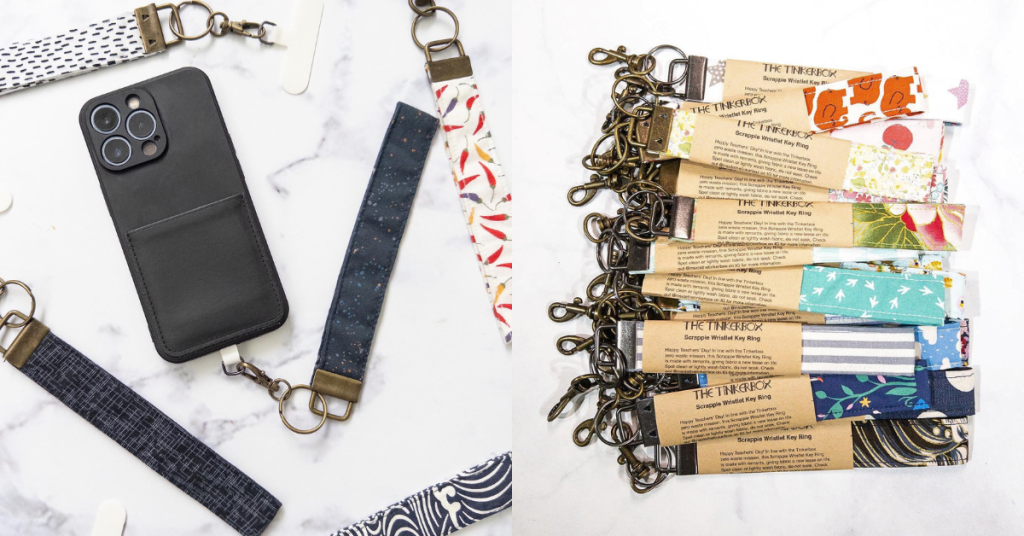
No plans on giving up despite the uphill battle
Speaking frankly, the founder shared that Singaporeans still have a long way to go in terms of sustainability and zero waste lifestyles.
“It’s still in its infancy. Many Singaporeans are not interested in practising a zero waste lifestyle,” Kay stated. One factor she attributes to this is that some find sustainability to be an inconvenience.
“If you look at the amount of waste and types of waste in the rubbish bins, you’ll see a tremendous amount of single-use [products]. At the moment, it’s not so much the gaps in the market but it’s [about] expanding the market.”
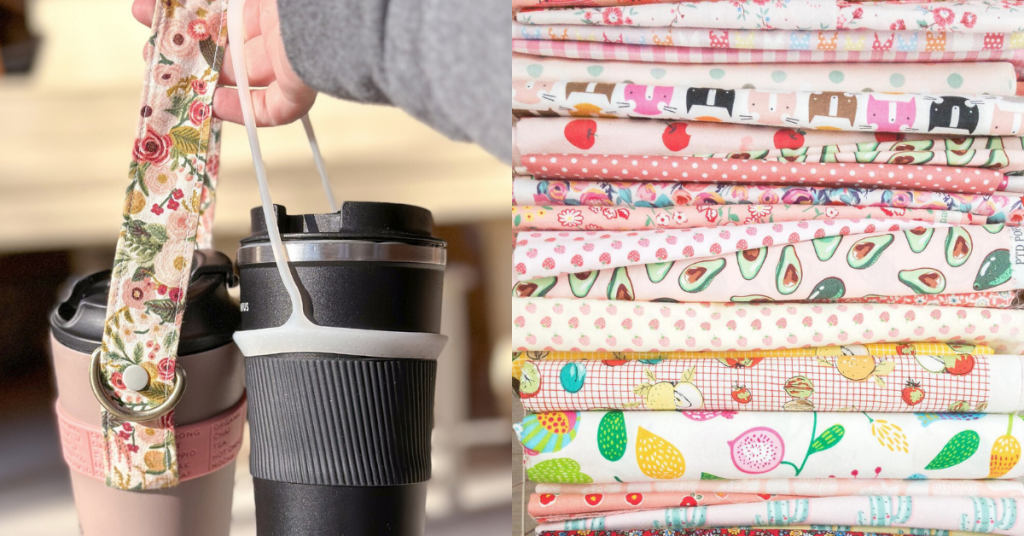
This is a key reason that she has continued on with The Tinkerbox as well.
However, she acknowledges that it can be challenging to go completely zero waste in Singapore. Many of the food resources are imported and some items just don’t have a zero waste alternative, such as milk.
In lieu of that, though, she reminded that there are low-hanging fruits. For example, bringing your own water bottles, lunchboxes, and cutleries when going out.
As for the business itself, Kay preferred to keep the financial figures confidential but she confided that it’s financially operable. And thus far, with this being her full-time career, it seems to be working out for her.
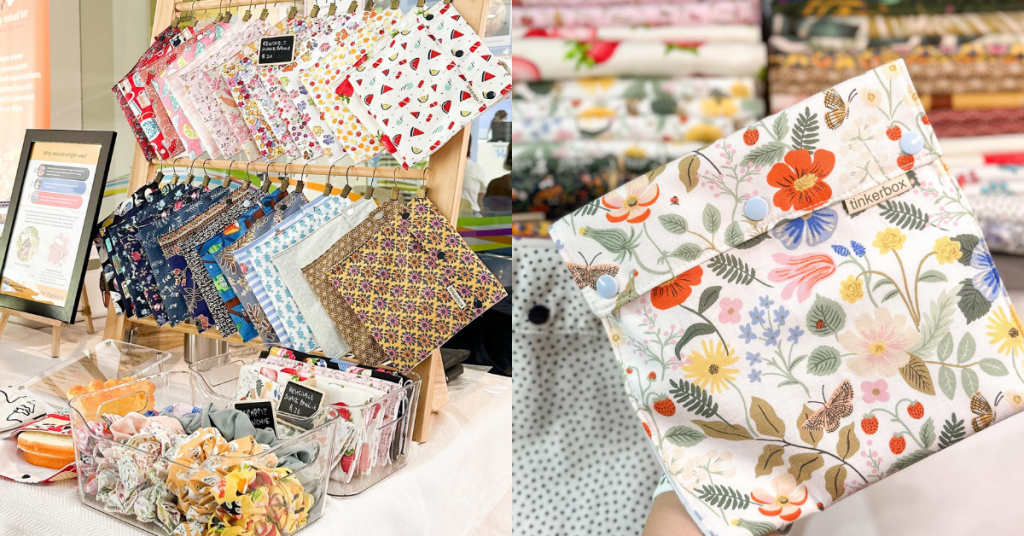
Though, she admitted that trying to change people’s ways can sometimes feel like an uphill battle. But she’s determined to play her part in changing the local zero waste landscape.
“My wishes for The Tinkerbox are to continue bringing awareness and education that avoiding single-use and choosing to reuse isn’t inconvenient or difficult, and it isn’t a goal that’s all or nothing,” Kay expressed.
“I want to help people see that with small changes to the systems in our lives, aspiring towards zero waste can be fun.”
So you’re likely to find Kay joining more pop-up events and collaborating with other local zero waste stores in the near future. Through this, she hopes to not only get more brand awareness but also to remind Singaporeans that going zero waste can be as simple as starting with a cloth pad.
- Learn more about The Tinkerbox here.
- Read other articles we’ve written about Malaysian startups here.
Featured Image Credit: GreenSpace+ (left) / The Tinkerbox (right)










